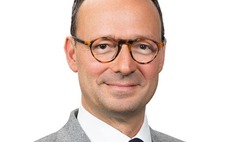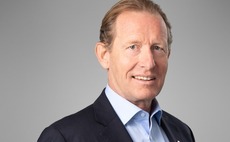
Going green: PE's environmental value-add
The private equity industry's approach to environmental value-add is evolving. The Environmental Defense Fund, KKR and The Carlyle Group discuss the various partnerships that underpin these efforts
The Environmental Defense Fund's (EDF) efforts to work with rather than against corporate America did not get off to an auspicious start. It was 1991 and the group was about to begin a joint project with McDonald's focused on waste reduction. Others in and around the non-governmental organization community branded EDF naïve and a sell-out.
"It's like saying I'm going to join a task force with the Mafia to discuss how to cope with the drug situation," was the withering assessment of Dr. Samuel Epstein, professor of environmental and occupational medicine at the University of Illinois' school of public health.
The fears turned out to be unfounded. EDF's contribution was to persuade McDonald's to replace the environmentally troublesome Styrofoam packaging in which its burgers were served with a paper-based alternative.
"We helped them turn a big PR headache about customers returning the used packaging to store lawns to express their dissatisfaction into a leadership opportunity for them to be the first major corporation to develop a sustainability program," says Jackie Roberts, who co-led the effort for EDF and now serves as chief sustainability officer at The Carlyle Group.
This success story formed the basis for a corporate partnership program that has helped Fedex reduce emissions from its truck fleets and Wal-Mart achieve greater energy efficiency in its supply chain. EDF now also works with private equity firms, including KKR and Carlyle.
"We identify an area in which we want a corporate partner, push them to set demanding goals and advise on how these goals can be achieved. There has to be a business case as to why it would not only be valuable for them, but for their whole sector," says Namrita Kapur, EDF's managing director for corporate partnerships. "We used to cajole PE firms to get out on the speaking circuit and promote this, but now a lot of the presentations on ESG and value creation are happening without us."
Within the environmental, social and governance (ESG) matrix, environmental issues have enjoyed a prominence based on the often very visible after-effects when they are not taken seriously. But the work done by EDF and other specialist groups - going beyond basic compliance to consider business and environmental value simultaneously - reflects a change in mindset across the private equity industry.
The GPP arrives
EDF's work with KKR began in 2007 when the private equity firm - alongside TPG Capital and Goldman Sachs - was looking to buy US electric utility TXU Corp. Earlier that year, TXU had announced it would build 11 coal-fired power plants, prompting an aggressive campaign from EDF urging that the plans be scaled back. It went as far as launching a legal action against the company.
KKR and TPG, keen to de-risk their impending deal, agreed a compromise: eight of the plants were scrapped and TXU promised to invest more in renewable energy and reduce emissions. Part of EDF's argument was that energy efficiency rather than new coal-fired plants was the cleanest and cheapest way to meet Texas' energy needs. TXU, now known as Energy Future Holdings, filed for bankruptcy protection last year, but its legacy lives on in KKR's sustainability efforts.
The PE firm wanted to develop its relationship with EDF further and this led to the formation of the green portfolio program (GPP) in 2008 - a set of analytic tools and metrics to improve business and environmental performance. A total of 27 past and present portfolio companies have committed to the program.
As of October 2014, approximately 2.3 million metric tons of greenhouse gas emissions have been avoided, plus 6.3 million tons of waste, and 27 million cubic meters of water use. The financial impact, based on costs avoided and additional revenue, is estimated to be $1.2 billion.
The GPP is not for everyone. Company management has to buy into the concept, committing to continuous improvement, providing KKR with the data for analysis, and participating in the annual results announcement. Furthermore, the company must be structured to meet these requirements: it needs to produce relevant data upon which performance can be assessed; and its environmental footprint should be large enough that improvement has a material impact. A financial services business, for example, may not be a good fit.
A recent addition to the GPP is Panasonic Healthcare, a Japanese manufacturer of diagnostic, laboratory and medical IT equipment with a global client base. Shane Lauf, one of the six KKR Capstone team members who regularly engage in KKR's global ESG programs, was on the ground two months ahead of the $1.67 billion deal closing last year as part of the broader team working with Panasonic Healthcare.
"We were aware that Panasonic Healthcare has for some time published detailed metrics around carbon dioxide emissions and waste, so we went into the business confident about their commitment to sustainability," he says. "The next step, which was really where I plugged in, was taking the GPP lens of looking at where we can be driving more business and environmental impact."
Having identified energy efficiency as a target area, the next step involved defining the right metrics to track the four manufacturing facilities - three in Japan and one in Indonesia - responsible for most of the company's energy consumption. KKR and Panasonic Healthcare then agreed on a baseline and a methodology to capture improvement following the introduction of energy saving measures, such as the introduction of LED lighting.
Since 2012, the company has saved $296,000 in energy costs, avoided 840 million metric tons of greenhouse gas emissions, and reduced energy usage per unit of production volume by 5%.
Natural synergies
The on-the-ground efforts that facilitated these results have been supported by materials and webinars that KKR curates as part of the GPP as examples of best practice across the portfolio that can be customized to fit individual needs. These take the form of the GPP handbook that covers 11 areas of common interest. It was published in 2013 and is made available to deal teams and portfolio companies.
"Despite companies having different industry and geographic perspectives, there are many shared challenges and solutions," says Elizabeth Seeger, a director of policy and public affairs at KKR who is responsible for GPP, having previously managed the program from the EDF side. "We can take what we learn from one company and share it with another or create common tools and guidance for use across different companies."
EDF's work with Carlyle includes the development of a customized due diligence framework that identifies how environmental innovation can contribute to value creation - again, moving from an appreciation of the environmental risks involved in an investment to considering the opportunities.
Like KKR, Carlyle has worked in partnership with investee companies to devise solutions that are applicable elsewhere in its portfolio. The private equity firm bought ADT Korea, Tyco International's South Korea-based fire safety and security systems unit, for $1.93 billion in 2014 and found scope for environmental improvements within the fleet of vans used on installation and maintenance jobs. Initiatives have been implemented to reduce fuel consumption based on Carlyle's experiences with RAC, a UK-based roadside auto repair company.
This more sophisticated approach to sustainability issues naturally asks new questions of the investment teams that in an ideal world would anticipate issues and draw the ESG professionals' attention to them before they are flagged up by the latter. Training - at GP and portfolio company levels - is therefore integral to any responsible investment push.
Carlyle's Roberts notes that part of her job is to provide deal teams with an industry perspective, pointing out if an initiative has been done before and helping them think through the many layers that ESG issues can have. As an example, she cites Axalta Coating Systems, which produces paint and coatings used by the automobile industry. Carlyle acquired the business in 2013 through a $4.9 billion carve-out from DuPont and took it public in November of last year.
Ahead of the IPO, the company decided to be more transparent about its ESG performance and put together a detailed report. The first draft relied on some ESG vocabulary that wasn't generally endorsed by ESG experts - rather than use "environmentally friendly" as a blanket term, "environmentally improved" or "greener" were inserted instead to highlight specific improvements - and also understand how to sell Axalta's efforts properly.
The company had invested heavily in R&D and responded to customer concerns about solvents by developing a water-borne paint that could be used on cars. This breakthrough was discussed towards the end of the report.
"I said, ‘You are burying the lead - that should be front and center. You have a great story about how you have evolved your core product and are not only offering traditional products for legacy customers but also a greener alternative that is winning new business. Focus on that initiative first." Roberts recalls. "We literally reordered all the pages and the company said, ‘Yes, we see the difference now.'"
This notion of companies grasping and appreciating such approaches tallies with EDF's experiences with its corporate partnership program. Wal-Mart sources nearly three quarters of its goods from China and the demands it places on suppliers in areas such as compliance have in the past been a source of tension. Now, though, according to anecdotal evidence, suppliers are more willing to accommodate these demands because they have seen others prove cost-effective.
Preserving the alignment of interest between supplier and buyer or investor and portfolio company is essential as environmental gains become harder to capture. EDF's Kapur notes there is a lot of low-hanging fruit in private equity portfolios, whether it is better driver training to reduce energy use in the logistics sector, recycling programs for fast food companies, or water conservation and waste management in manufacturing. However, the immediate impact of these initiatives wears off with time.
"It becomes more about having management systems in place that are not only maintaining efficiency but preventing inefficiency occurring in the first place," she explains. "The effect is subtler and not necessarily captured by greenhouse gas reduction numbers. To really understand the richness of continued progress you have to include qualitative metrics."
Recalibration time
Indeed, nuance is already filtering through to how private equity firms assess their environmental performance. To date, the GPP has highlighted its progress in environmental and financial terms: greenhouse gas emissions avoided, tons of waste avoided or recycled, cubic meters of water consumption avoided; and the amount of money saved or generated through these initiatives.
In KKR's annual global citizenship report, the first of which was published in 2010, case studies offer more detail on how these returns were achieved. Carlyle takes a similar approach in its corporate citizenship report, combining narrative and numbers, albeit without pinning a financial impact estimate to each portfolio company. From this year, however, KKR will modify its approach.
"We have realized over the past year that we are leaving a lot of value and exciting projects off the table because we have been focusing on eco-efficiency work," says Seeger. "At the end of 2015 when we do our new results announcement we will re-launch the program. We will keep the components that are already there in terms of eco-efficiency but we will be adding focus on eco-innovation and eco-solutions."
Eco-innovation focuses on the projects being run within portfolio companies that are driving revenue, market growth or customer growth in addition to the cost avoidance and savings aspects already being monitored. Eco-solutions, meanwhile, relates to companies that by the very nature of their business have a positive impact on the environment. Australia-based Santanol is one of the few sustainable sources of sandalwood globally, and as a KKR investee since 2013, would fall into this category.
With its 2,100 hectares of Indian sandalwood forest contributing to perfumes, carvings, incense and medicines, Santanol delivers financial returns. But attaching a tangible value to the opportunities forgone if KKR had not backed the company and supported its expansion is difficult. Much as the GPP requires continuous improvement from its participants, so the metrics themselves - and the extent of what private equity thinks it can achieve - keep on evolving.
Latest News
Asian GPs slow implementation of ESG policies - survey
Asia-based private equity firms are assigning more dedicated resources to environment, social, and governance (ESG) programmes, but policy changes have slowed in the past 12 months, in part due to concerns raised internally and by LPs, according to a...
Singapore fintech start-up LXA gets $10m seed round
New Enterprise Associates (NEA) has led a USD 10m seed round for Singapore’s LXA, a financial technology start-up launched by a former Asia senior executive at The Blackstone Group.
India's InCred announces $60m round, claims unicorn status
Indian non-bank lender InCred Financial Services said it has received INR 5bn (USD 60m) at a valuation of at least USD 1bn from unnamed investors including “a global private equity fund.”
Insight leads $50m round for Australia's Roller
Insight Partners has led a USD 50m round for Australia’s Roller, a venue management software provider specializing in family fun parks.







